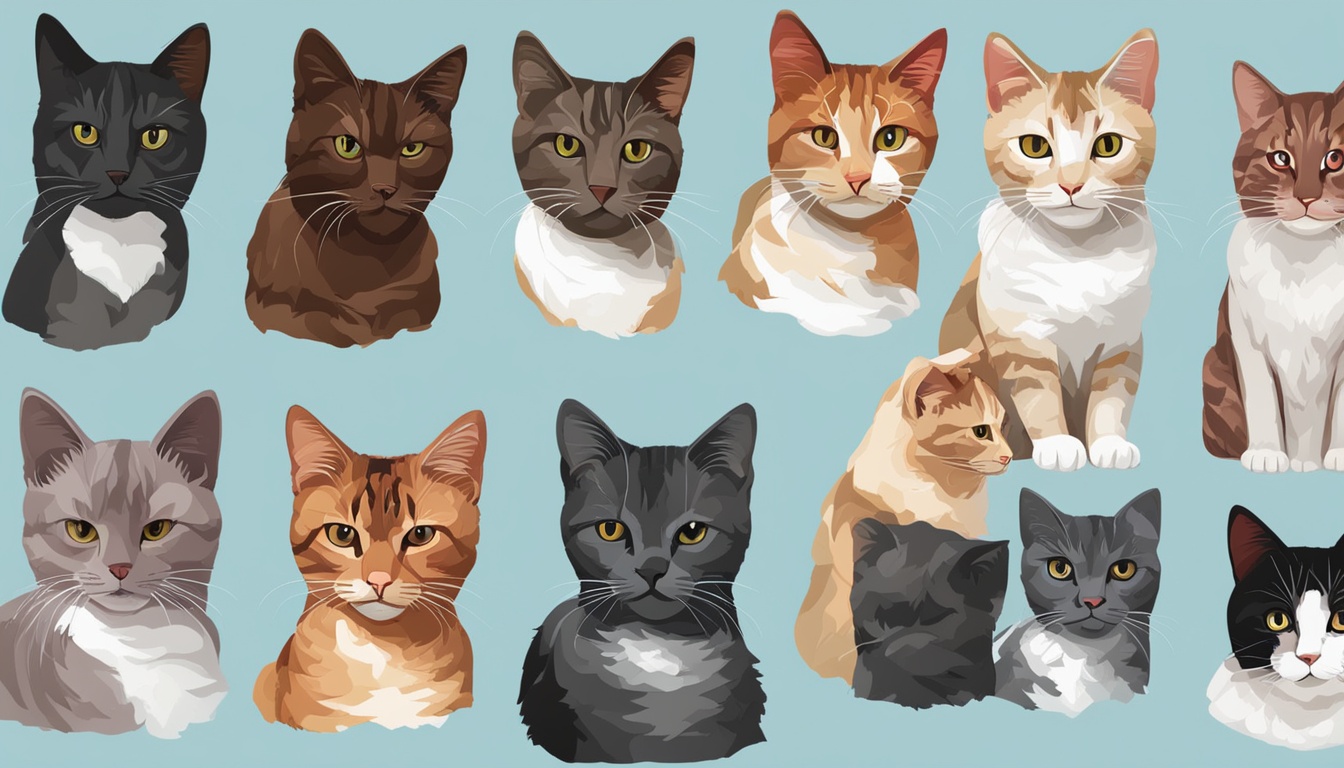
Knowing when your cat is sick can be hard. Cats hide their pain well. So, it’s important to watch their health closely. Regular vet visits help spot any health issues early. Learning about common cat illnesses allows you to act fast when your cat needs care.
Look out for signs like more hiding, eating less, drinking more or less, losing weight, and grooming differently. These symptoms mean your cat may be sick. It’s important to seek vet help early. Catching problems early helps avoid bigger health issues later, keeping your cat healthy longer.
Key Takeaways:
- Regular vet check-ups are essential for monitoring your cat’s health and catching illnesses early.
- Common signs of illness in cats include increased hiding, changes in appetite and drinking habits, weight loss, and alterations in grooming habits.
- Some of the most common cat illnesses include fleas, worms, cat flu, diabetes, feline leukaemia virus (FeLV), feline parvovirus (FIE), and chlamydia felis.
- Preventive measures such as regular vaccinations, flea and worm treatments, and maintaining a healthy diet and weight can help reduce the risk of these illnesses.
- By staying informed and proactive, you can help keep your cat happy and healthy for years to come.
Common Cat Illnesses: Fleas, Worms, and Cat Flu
Fleas make cats itch and feel uncomfortable. Using flea treatments for your pet and home can stop infestations.
Worms, like tapeworms, can also bother cats, leading to itching and visible segments in feces. Deworming treatments from your vet can keep your cat clear of worms.
Cat flu is a bad respiratory infection, showing through a runny nose and sore eyes. Vaccines are key to prevent it, with regular booster shots needed.
Fleas in Cats
Fleas are tiny, wingless bugs that trouble cats. They can cause itching, skin issues, and allergies in some cats.
Preventing fleas means using treatments like topical applications, oral meds, or flea collars. Ask your vet for the best choice for your cat.
It’s also important to tackle fleas at home. Vacuum and clean your cat’s bedding regularly to destroy flea eggs and larvae.
Worms in Cats
Worms can seriously affect cats’ health. They include roundworms, tapeworms, hookworms, and whipworms.
Signs of worms in cats can be weight loss, diarrhea, or a dull coat. Itchy anus or worm pieces in poop are other signs.
Your vet will give the right deworming treatment. Following a deworming schedule is vital to keep your cat healthy.
Cat Flu
Cat flu spreads easily and can affect any cat. It’s caused by viruses like the feline herpesvirus.
Symptoms include sneezing, nasal discharge, and loss of appetite. In bad cases, it can cause pneumonia and even death.
Vaccinating your cat is crucial to prevent flu. Vaccines start with a series of shots and continue with boosters. They reduce the disease’s severity if caught.
Common Cat Illnesses: Diabetes, FeLV, FIE, and Chlamydia Felis
Cats can get sick with many illnesses. It’s important for owners to know about these. We will talk about diabetes, feline leukaemia virus (FeLV), feline parvovirus (FIE), and chlamydia felis. Learning about the symptoms, treatments, and how to prevent these illnesses will help keep your cat healthy.
Diabetes in Cats
Diabetes can affect cats, especially if they are overweight. It happens when the cat’s body can’t handle blood sugar well. Signs include drinking more water, losing weight, and sleeping more. If you see these signs, take your cat to the vet. Treatment includes giving insulin and checking blood sugar often. A healthy diet and keeping your cat from getting overweight can also help.
FeLV (Feline Leukaemia Virus)
FeLV is a deadly disease that spreads between cats. It can be passed on through saliva, mating, or when cats fight. It makes the immune system weak. This makes cats more likely to get sick and get certain cancers. It’s important to vaccinate your cat and keep them away from sick cats to stop FeLV from spreading. Going to the vet often for check-ups and blood tests can catch the virus early.
FIE (Feline Parvovirus) in Kittens
Feline parvovirus (FIE) mainly affects kittens. It’s a serious illness. It can cause vomiting, no interest in food, and severe diarrhea. This can lead to dangerous levels of dehydration. Vaccinating your kitten is key to prevention. Treatment often includes IV fluids and medicine for vomiting and diarrhea. A vet’s care is very important for kittens with FIE.
Chlamydia Felis: Common Infection in Cats

Chlamydia felis often infects cats’ eyes, causing conjunctivitis. Cats get it from other infected cats or things that have the germs. Eye drops or antibiotics from a vet can treat it. Keeping things clean and visiting the vet regularly can help stop it from coming back. Keeping sick cats away from healthy ones is also key to prevention.
Conclusion
Knowing about common cat illnesses is key to keeping them healthy and happy. We need to make sure they get regular check-ups, shots, and treatments for fleas and worms. Watching their diet and weight also helps stop health problems before they start.
It’s vital to spot any signs of illness early. Changes in how much they eat, play, or clean themselves can signal trouble. Getting help from a vet quickly can prevent more serious issues and help your cat feel better sooner.
Always turn to your vet for advice on your cat’s health. They’ll offer the right care and options for your cat’s specific needs. By staying informed and working closely with your vet, you can keep your cat both happy and healthy for years.
FAQ
What are some common signs of illness in cats?
What are some common cat illnesses?
How can I prevent flea infestations in my cat?
How can I prevent worms in my cat?
What is cat flu and how can I prevent it?
What are the signs of diabetes in cats?
How can I prevent feline leukaemia virus (FeLV)?
What are the symptoms of feline parvovirus (FIE)?
How can I treat chlamydia felis in my cat?
What can I do to ensure the health and well-being of my cat?
Source Links
- https://www.cats.org.uk/help-and-advice/health/common-cat-illnesses
- https://www.aspca.org/pet-care/cat-care/common-cat-diseases
- https://www.amcny.org/blog/2023/05/31/the-top-ten-cat-diseases-and-how-to-recognize-them/




